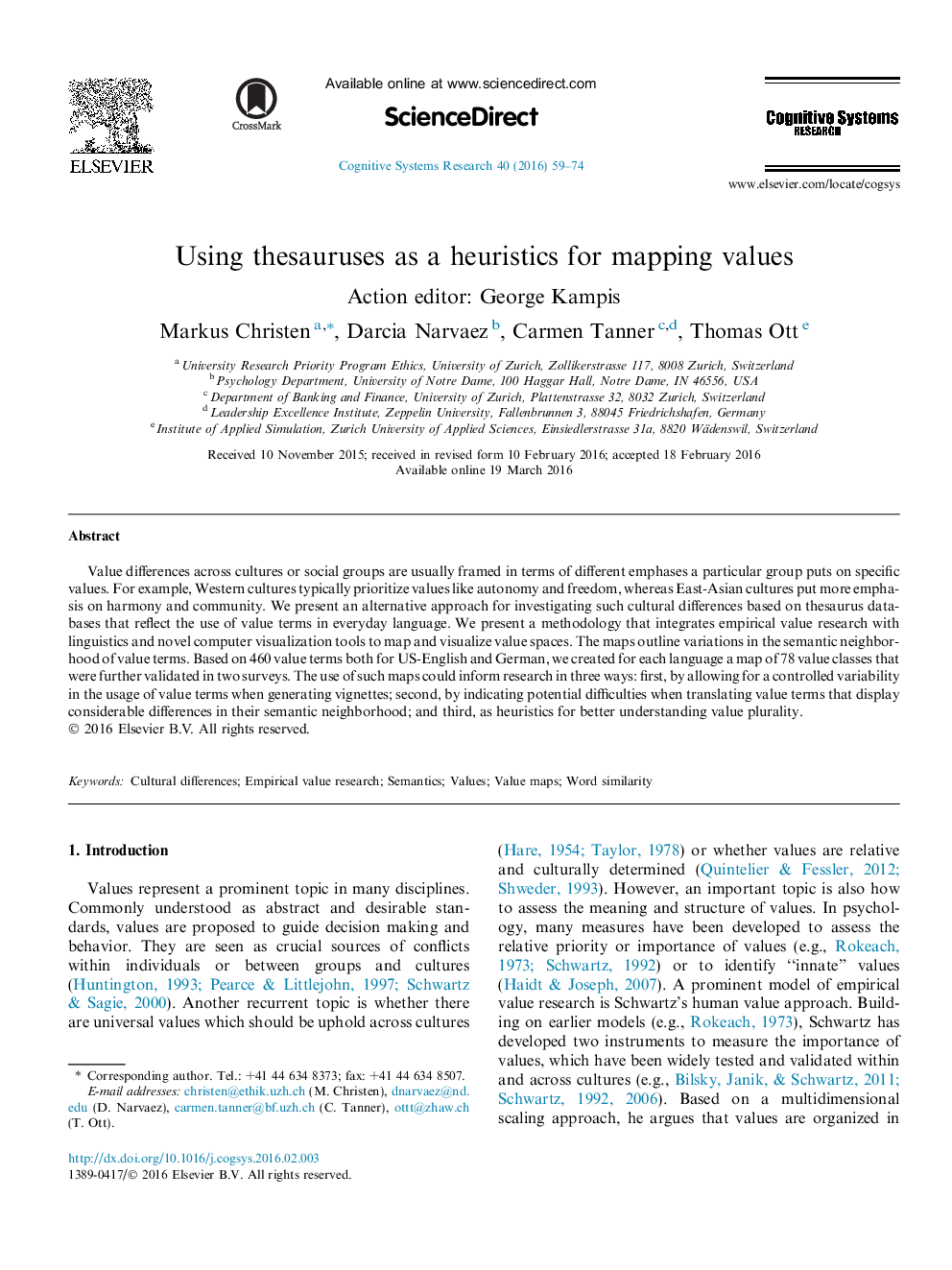| Article ID | Journal | Published Year | Pages | File Type |
|---|---|---|---|---|
| 378351 | Cognitive Systems Research | 2016 | 16 Pages |
Value differences across cultures or social groups are usually framed in terms of different emphases a particular group puts on specific values. For example, Western cultures typically prioritize values like autonomy and freedom, whereas East-Asian cultures put more emphasis on harmony and community. We present an alternative approach for investigating such cultural differences based on thesaurus databases that reflect the use of value terms in everyday language. We present a methodology that integrates empirical value research with linguistics and novel computer visualization tools to map and visualize value spaces. The maps outline variations in the semantic neighborhood of value terms. Based on 460 value terms both for US-English and German, we created for each language a map of 78 value classes that were further validated in two surveys. The use of such maps could inform research in three ways: first, by allowing for a controlled variability in the usage of value terms when generating vignettes; second, by indicating potential difficulties when translating value terms that display considerable differences in their semantic neighborhood; and third, as heuristics for better understanding value plurality.
